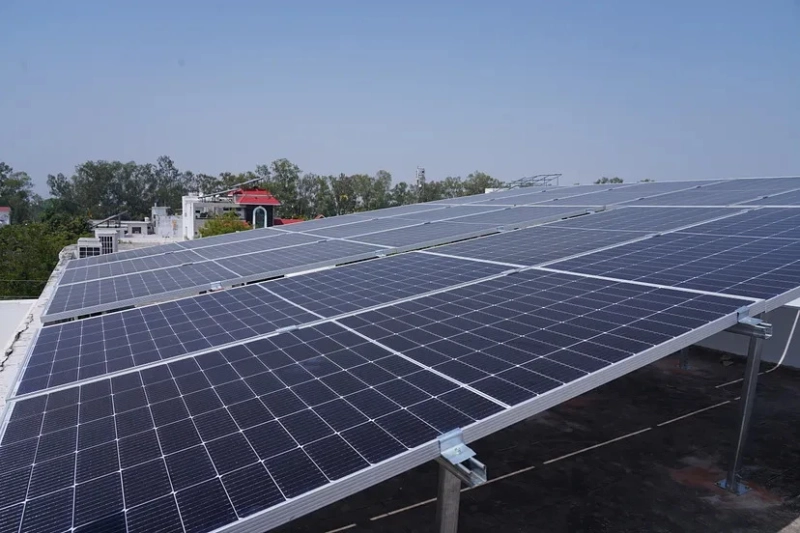When it comes to solar systems for homes, there is no one-size-fits-all answer. The best solar system for your home will depend on several factors such as the amount of energy you need, the size of your roof, your budget, and your location. There are 4 types of solar systems available in the market:
On-Grid Solar System: An on-grid solar system, also known as a grid-tied solar system, is a solar power system that is connected to the electricity grid. This type of system uses solar panels to generate electricity from the sun and then feeds that electricity into the grid for use by homes and businesses.
One of the benefits of an on-grid solar system is that it allows homeowners to use solar power when it’s available and to draw electricity from the grid when solar power isn’t sufficient. This can help to reduce energy costs and can also provide a backup power source in the event of a power outage.
Since an on-grid solar system does not require batteries, it is cheaper to install when compared to an off-grid system. It is less costly when compared to other solar systems. It involves less maintenance and generally has a longer life when compared to an off-grid system. This system can be used with string, micro, or hybrid inverters.
Off-Grid Solar System: If you live in a remote area or experience frequent power outages, you may want to consider an off-grid solar system. An off-grid solar system includes batteries to store excess power for use during times when the sun is not shining. However, this type of system can be more expensive and require more maintenance than a grid-tied system.
Unlike grid-tied solar systems, which are connected to the utility grid, off-grid solar systems are designed to store excess energy in batteries for use when the sun is not shining. This allows users to have access to electricity even in remote areas where the utility grid is not available.
Hybrid Solar System: A hybrid solar energy system is a combination of on-grid and off-grid solar systems. It is basically a grid-connected system with a battery backup. So, it has the advantage of both storing excess energy in the battery as well as selling the surplus energy generated to the grid.
The advantage of a hybrid solar system is that it can provide a reliable and consistent supply of electricity, even when weather conditions are not ideal for solar energy production. For example, a hybrid solar system with battery storage can store excess energy generated during the day and use it to power the home or business during the night or on cloudy days.
Direct Solar System: If a person wants to run his appliance like a water pump, atta chakki, etc. through a solar panel, he can use a Direct Solar system. Solar panels and VFD are the two main components of this kind of system.
To determine the best solar system for your home, it’s important to consult with a professional solar installer who can evaluate your specific needs and recommend the most appropriate system for you. Loom Solar will help you with this. Our company provides engineer visits to help you choose the best solar system according to your need. For More info visit www.loomsolar.com.
Benefits of site survey
· certified solar engineers check your meter-sanctioned load, monthly power consumption, space availability, and sunlight movement.
· Analysis of the roof whether it can handle the weight of solar PV modules, and how solar panels will be fixed.
· Existing electrical connections in your home


